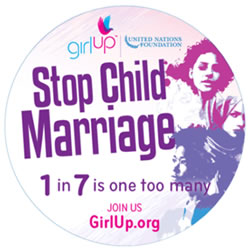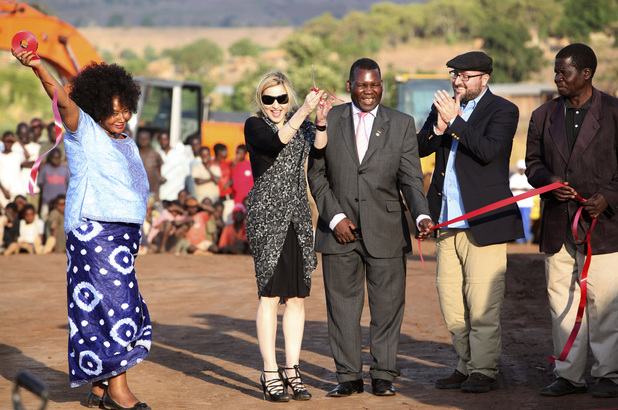In Malawi, many girls drop out of school because they are forced by their families to marry an older man. But a local NGO is working to change the practice.
The Stop Child Marriage project is following widely reported cases of girls dropping out from school largely because of forced early marriages.
The project is being carried out in Chitera village in the southern district of Chiradzulu. The region has one of the country’s highest rates of child marriage.
Faith Phiri is the Executive Director of the Girls Empowerment Network, GENET.
“In this area,” she says, “you could hear stories of girls as young as 10 or 11 years being forced into marriage with men four or five times older. So that’s why we thought of running this campaign so that we should change the situation of adolescent girls in this area”.
Phiri says one of contributing factors is a traditional practice known as Kusasa Fumbi. It requires girls who have begun their menstrual cycles to have sex with a man as a way of removing what is called ‘childhood dust’.
“Such a tradition negatively impacts the lives of adolescent girls because after undergoing an initiation ceremony, the girl is deemed to be mature enough to handle marriage. This is usually at the age of around 10, 11 or 12,” she explains.
Phiri says another danger is that most of the men hired for removing so-called ‘dust’ don’t use condoms and put their adolescent partners at risk of being infected with sexually transmitted diseases, including AIDS.
Another cultural practice, Chitomero, encourages parents to offer a dowry to an older man who agrees to marry their young daughter.
Phiri says the Girls Empowerment Network is asking traditional leaders to modify or abolish the practices.
“Over 22 community leaders sat down and drafted by-laws that are there to protect the adolescent girls. In these areas, child marriage is now a criminal offence. People have been penalized because of violating these by laws,” she says.
The Traditional Authority – Chitera, or supreme leader of the village and 50 others, has taken action against the practice. She says the by-laws penalize any traditional leader or parent who authorizes the marriage of a girl younger than 21 years of age.
“The chiefs are penalized by paying seven goats to me,” she says. “Parents who force their children into marriage would be fined to pay three chickens to their village headman and a goat to me, the ‘traditional authority.’”
Chitera says there have been no cases of child marriage since the formal adoption of the by-laws six months ago.
And this is good news to the girls in the district. Thokozani Kazembe is a 17-year old attending secondary school at Nkhande Secondary School.
“We girls here have benefited a lot from the empowerment project,” says Kazembe. “Besides advocating the abolition of the bad cultural practices, it has also enlightened us to [think about] who we want to become after completing our education. In the past, we were attending school just because we wanted to learn reading and writing.”
Phiri says the challenge is that it becomes difficult to punish some people from villages which are not party to the bylaws when they take an underage girl for marriage.
She says if there are enough funds, they plan to extend the three- year project to the rest of the district and completely end early marriage.





No comments! Be the first commenter?